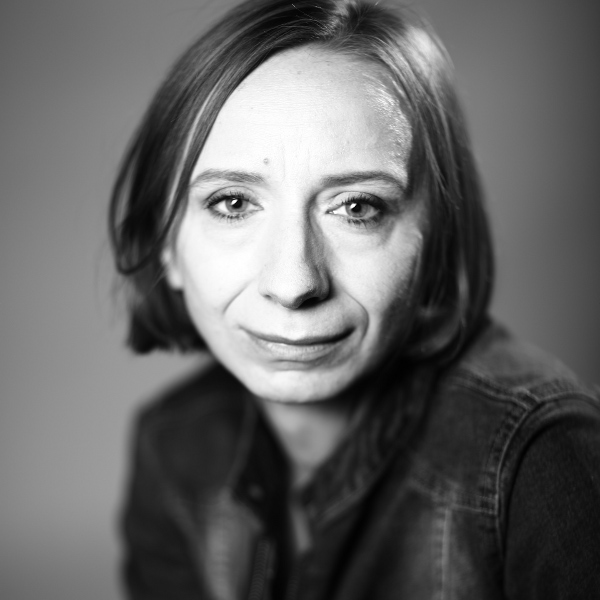Kamila Klamut

Since the mid-1990s Kamila Klamut has been closely associated with the Grotowski Institute in Wrocław, Poland. In 1996, at the invitation of Grzegorz Bral and Anna Zubrzycki, she took part in forming Song of the Goat Theatre and performed in its first piece, Song of the Goat: Dithyramb. Since 1999 she has collaborated with Jarosław Fret, with whom she has been on several expeditions searching for the oldest extant forms of music.
She co-initiated the founding of Teatr ZAR and appears in all three parts of Teatr ZAR’s triptych Gospels of Childhood, which has been performed in numerous cities around the world. Klamut co-created, with Mariana Sadovska, Camille, a piece inspired by the life and work of French sculptress Camille Claudel, which premiered in the Grotowski Institute in February 2014. In September 2014 she began collaborating with Studio Matejka, with which she performed in The Harmony of Contradictions: Poland, directed by Matej Matejka. Kamila Klamut closely collaborates on the Body Constitution programme that has been realized by the Grotowski Institute within the domain of research in practice. She is currently part of Teatr ZAR’s new project Armine, Sister.
WORKSHOP
Impossible Antigone – Insane Agave: Approaching them through physical theatre
In theatre, quite literally everything depends on spectators’ point of view. How different are the perspectives of spectators sitting in the first row compared to those seated in the thirty-fifth? For viewers sitting as far back as the thirty-fifth row, actors on stage appear as mere figures, a distant representation. And yet, the belief in actors’ power of expression takes precedence over any such considerations. In the case of an ancient theatre, the power of expression is amplified by its special acoustics or the use of cothurnus.
For example, how can an actor portraying both Agave and Pentheus in the same production of The Bacchae convey each role in a distinct manner? How do we perceive actors’ power of physical expression nowadays?
The workshop aims to fine-tune participants’ bodily awareness, on the one hand broadening their perception of actors / humans as biological beings and, on the other hand, developing their ability to observe what is internal and deeply connected with actors’ presence. The workshop will be based on team exercises, elements of partner training and individual actions.





